Navjot Singh Sidhu is lying in order to hide his wife’s mistake
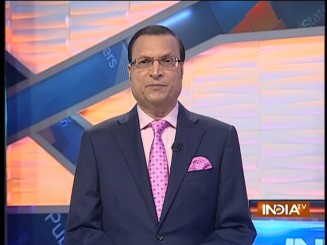 On Dussehra evening, Punjab minister Navjot Singh Sidhu’s wife Dr Navjot Kaur addressed a crowd at a Ravana effigy burning event in Amritsar. As the effigies were being burnt, a train crossed the railway tracks crushing more than 61 people to death in a gruesome tragedy. Seeing the melee, she immediately left the venue in her car.
On Dussehra evening, Punjab minister Navjot Singh Sidhu’s wife Dr Navjot Kaur addressed a crowd at a Ravana effigy burning event in Amritsar. As the effigies were being burnt, a train crossed the railway tracks crushing more than 61 people to death in a gruesome tragedy. Seeing the melee, she immediately left the venue in her car.
As more and more injured people were brought to hospital, she appeared on TV to say that she came to know about the accident 15 minutes after she left the spot. That was a plain white lie. The videos from the accident spot clearly nail her lie.
Nobody would have blamed Dr Navjot Kaur had she not uttered this lie. First, she reached the venue late, gave her speech, and as soon as the accident took place, she just vanished. Dr Navjot Kaur was told at the venue that many people had been run over by a train, and yet she left the spot.
Nobody is saying that Navjot Kaur’s action to leave the spot was deliberate. Mistakes sometimes do occur. It would have been better if she had admitted her mistake. But in order to hide one lie, more and more lies are being spouted not only by her, but by her husband Punjab minister Navjot Singh Sidhu. The former cricketer is now shifting the blame on Railways to hide his wife’s mistake.
Click Here to Watch Full Video | Get connected on Twitter, Instagram & Facebook
Several questions arise over tragic train accident in Amritsar
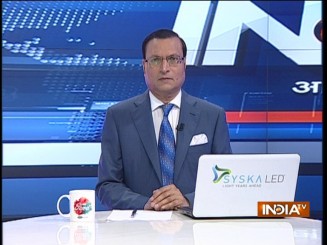 The tragic train accident that took place in Amritsar on Friday evening during Dussehra celebrations is truly spine chilling. It was a disaster in the making and it raises several questions about our system.
The tragic train accident that took place in Amritsar on Friday evening during Dussehra celebrations is truly spine chilling. It was a disaster in the making and it raises several questions about our system.
Railway officers claim that the crowd had gathered on the tracks despite the gates remaining closed at Joda Phatak crossing, because two trains were to pass at that time. But local eyewitnesses have a different view.
There are some disturbing questions that remain, and the nation needs answers. One, the Dussehra effigy burning event used to take place at that spot every year, which was close to rail tracks, then why didn’t the administration took steps to control the crowd?
Two, why didn’t the local railway officials sent employees to stop the crowd from spilling over the rail tracks ?
Three, the railway crossing gate may have remained closed, but why weren’t the local residents alerted by railway officials about two trains passing through simultaneously?
Four, when railway officials knew that a Dussehra event was taking place close to the rail tracks, why wasn’t the speed of train reduced ?
Five, two trains were to cross the tracks at that time, and local railway officials had prior information. Then, why didn’t they take the initiative to caution the crowd that had gathered on the tracks ?
Six, since the Dussehra event was well publicized, why didn’t the railway officials at Amritsar station delay the crossing of the trains till the event was over ?
Seven, Why was there no coordination between the local administration and railway officials?
Eight, why didn’t the local police fail to keep people away from rail tracks ?
And Nine, the last question: If Dr Navjot Kaur Sidhu was present at the event, why did she leave in haste and did not stay back for rescue operations?
These are questions, and we shall continuously try to seek the right answers.
Click Here to Watch Full Video | Get connected on Twitter, Instagram & Facebook
BJP spokespersons were finding it difficult to defend M. J. Akbar
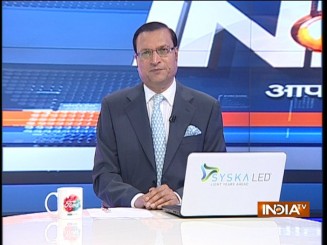 Union Minister of State for External Affairs M J Akbar resigned on Wednesday saying “since I have decided to seek justice in a court of law in my personal capacity, I deem it appropriate to step down from office and challenge false accusations levied against me, also in a personal capacity”. Nearly 20 women journalists who had worked with Akbar in newspapers have levelled accusations of sexual misconduct against him when he was an editor.
Union Minister of State for External Affairs M J Akbar resigned on Wednesday saying “since I have decided to seek justice in a court of law in my personal capacity, I deem it appropriate to step down from office and challenge false accusations levied against me, also in a personal capacity”. Nearly 20 women journalists who had worked with Akbar in newspapers have levelled accusations of sexual misconduct against him when he was an editor.
For the BJP, its spokespersons were finding it difficult to defend the minister in public. The day women journalists levelled charges of sexual harassment against Akbar, who was then in Africa, it was almost clear that he may have to quit. The only question was: when. Akbar returned to India, filed a criminal defamation suit against a woman journalist in a Delhi court, and on Wednesday he tendered his resignation.
National Security Adviser Ajit Doval on Tuesday met Akbar and later he called on the BJP President Amit Shah. By that time, it was almost clear that Akbar would be asked to quit. BJP leaders were being constantly asked questions about Akbar and they were finding it difficult to answer. With Akbar’s resignation, the party spokespersons can now breath a sigh of relief. It is now for the court to decide on the merits of the charges levelled against Akbar.
Click Here to Watch Full Video | Get connected on Twitter, Instagram & Facebook
Law should show delinquent VIP brats their true place
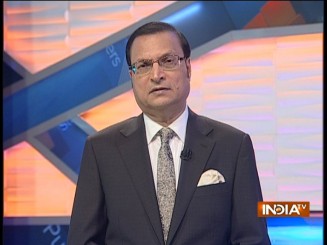 On Saturday night, Ashish Pandey, the son of a Bahujan Samaj Party leader from UP, brandished his pistol in full view of others inside the portico of Hotel Grand Hyatt in New Delhi, and threatened a couple, after mouthing obscenities. Three young women accompanying him were also seen in the video mouthing filthy abuses at the couple, who appeared to be shaken.
On Saturday night, Ashish Pandey, the son of a Bahujan Samaj Party leader from UP, brandished his pistol in full view of others inside the portico of Hotel Grand Hyatt in New Delhi, and threatened a couple, after mouthing obscenities. Three young women accompanying him were also seen in the video mouthing filthy abuses at the couple, who appeared to be shaken.
The incident would have remained under wraps but the video, taken by one of the women accompanying Pandey, made its way to the social media. As news channels flashed the video, Delhi and UP police sprung into action, and the son of the politician went underground.
The young man, who was publicly displaying his swagger, holding the pistol in his right hand, and threatening the couple, suddenly vanished, realizing the enormity of his crime. Such people are enemies of civil society. They unleash their power with abandon, with scant regard to law, and go to the extent of committing murders and rapes.
This incident reminds one of Jessica Lal murder case, where the son of a heavyweight Haryana politician, shot at the model, who was acting as bartender, for refusing to serve him liquor.
The background check of Pandey’s family reveals that his father and uncle have already several criminal cases slapped against them, and yet they are part of our political system. Moreover, their son seemed to have learnt all the ropes from his seniors and has the temerity to swagger around, holding a pistol and threatening people in a public place.
Such offsprings of politicians brazenly use money, muscle and political power to evade jail. Time has come for the law to show them their right place, otherwise these brats will continue to indulge in muscle flexing and shock civil society with their tantrums.
Click Here to Watch Full Video | Get connected on Twitter, Instagram & Facebook
How terror mastermind Hafiz Saeed’s outfit tried to build a mosque in Haryana with hawala money
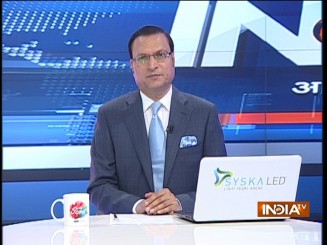 The National Investigation Agency (NIA) has arrested three persons from Old Delhi and Nizamuddin on charge of bringing hawala money from a person in Middle East, who is an office bearer of Falah-i-Insaniyat Foundation, a front organisation of Pakistani terror mastermind Hafiz Saeed.
The National Investigation Agency (NIA) has arrested three persons from Old Delhi and Nizamuddin on charge of bringing hawala money from a person in Middle East, who is an office bearer of Falah-i-Insaniyat Foundation, a front organisation of Pakistani terror mastermind Hafiz Saeed.
The most worrying thing about this raid is that hawala money from Hafiz Saeed’s outfit was channelized to build a mosque in Palwal, Haryana.
Mosques are places of worship, and no religion allows building of a place of worship with terror funding. These terrorists have nothing to do with Islam, nor with mosque and neither with humanity. For them, a mosque is a tool for carrying out terror attacks.
Muslims living in Palwal did not have even a faint knowledge about the source of money that was being given to build a mosque. The question is, why NIA raised finger at this mosque and not at thousands of mosques across India?
The NIA was working on this terror module for last several months. Rs 1.5 crore cash was recovered from those arrested, and one of the accused confessed that he had given Rs 70 lakhs to build the mosque. Citizens should be on alert about the source of funds that come in for building places of worship.
Click Here to Watch Full Video | Get connected on Twitter, Instagram & Facebook
How to stop stubble burning and save Delhi from air pollution
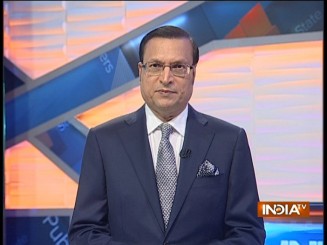 India TV on Friday gave a ground reality check from different places in Haryana and Punjab to show that farmers have already started burning stubble in their fields, leading to massive air pollution. This will ultimately affect air quality in National Capital Region and the surrounding areas. This is due to lack of spreading awareness among farmers, who are in a hurry to dispose of the paddy stubble in order to start fresh sowing from Rabi season. In some instances, in Punjab and Haryana, local village panchayats have allowed farmers to burn stubble, and in some other cases, they have threatened to cut the stubble and dump them in front of the Collector’s office.
India TV on Friday gave a ground reality check from different places in Haryana and Punjab to show that farmers have already started burning stubble in their fields, leading to massive air pollution. This will ultimately affect air quality in National Capital Region and the surrounding areas. This is due to lack of spreading awareness among farmers, who are in a hurry to dispose of the paddy stubble in order to start fresh sowing from Rabi season. In some instances, in Punjab and Haryana, local village panchayats have allowed farmers to burn stubble, and in some other cases, they have threatened to cut the stubble and dump them in front of the Collector’s office.
Immediate action is needed to prevent farmers from burning stubble, otherwise it will be a repeat of previous years, when smog will set in with the early onset of winter in Delhi. Farmers say they are unable to bear costs for cutting off and transporting stubble for disposal, and burning them is the only way out.
There are three different options available to reach a solution. One, agricultural scientists have prepared decompost, which if mixed with stubble, can decompose them and increase soil productivity. The problem is that not much decompost is right now available nor are the farmers aware about it. If this decompost is provided to farmers free of cost, much of the stubble can be disposed of.
The second option: government can offer to buy stubble from farmers at a fixed rate, so that farmers can recover the cost of cutting off and transporting stubble. These can be used for rope making, and already some farmers have started doing this.
The third option: Union Minister Nitin Gadkari has already said in Aap Ki Adalat that government can buy stubble from farmers in order to make ethanol, which can be used as a bio-fuel.
Time is short, and I would appeal to the Centre and respective state governments to act fast. Farmers cannot wait for long. Burning of stubble in fields have been going on for years, and smoke emanating from such fires have choked Delhi’s air quality. Old persons and children living in the capital suffer the most, leading to rise in cases of asthma. We cannot lose time any more.
Click Here to Watch Full Video | Get connected on Twitter, Instagram & Facebook
A tie-up with BSP could have been advantageous for Congress in MP
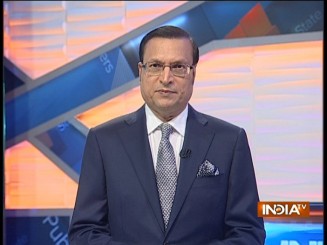 India TV on Thursday telecasted an opinion poll based upon a pre-poll survey conducted by CNX and the projections showed that BJP may get a comfortable majority, though with reduced strength, in the forthcoming Madhya Pradesh assembly elections.
India TV on Thursday telecasted an opinion poll based upon a pre-poll survey conducted by CNX and the projections showed that BJP may get a comfortable majority, though with reduced strength, in the forthcoming Madhya Pradesh assembly elections.
Since polling is more than a month away, this opinion poll can be considered as preliminary. In politics, situations, issues and circumstances change. A single issue can upstage all predictions in an election. No opinion poll can be called final, but the pre-poll survey gave a fairly clear idea about the mood of the people in Madhya Pradesh.
All hopes of Congress rest on anti-incumbency factor, and it is true that there has been a decline in the vote share and number of seats projected for BJP. But one thing to note is that: after being in power for 15 years, if most of the respondents show their clear preference for BJP, then it means that anti-incumbency factor has not cut much ice in the minds of the people.
One particular thing to note is that had the Congress and Bahujan Samaj Party stiched an alliance, their combined vote share would have been more than that of the BJP. Of course, in elections, two plus two never makes four, and there is always the X factor. One can however safely say that a Congress-BSP tie-up could have been advantageous for the main opposition party. For the moment, it looks as if Chief Minister Shivraj Singh Chouhan is way ahead of the rest.
Click Here to Watch Full Video | Get connected on Twitter, Instagram & Facebook
Statue of Unity shall always be India’s pride
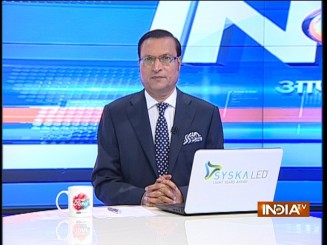 On Wednesday night, in my show Aaj Ki Baat, India TV for the first time unveiled the first look of the statue of Sardar Vallabhbhai Patel, which will be dedicated to the nation by Prime Minister Narendra Modi on the 143rd birth anniversary of The Iron Man of India on October 31.
On Wednesday night, in my show Aaj Ki Baat, India TV for the first time unveiled the first look of the statue of Sardar Vallabhbhai Patel, which will be dedicated to the nation by Prime Minister Narendra Modi on the 143rd birth anniversary of The Iron Man of India on October 31.
Named Statue of Unity, it is 182 metres (597 feet) tall from the plinth level and 240 metres tall from the river base of Narmada. It faces the Narmada Dam. It is located on a river island Sadhu Bet near Vadodara. Spread over 20,000 sq. metre of project area, the statue will be surrounded by a huge artificial lake.
This is the tallest statue in the world, taller than the tallest one presently, Spring Temple Buddha, in China, which is 128 metres tall. Modi had laid the foundation of the Statue of Unity five years ago, on October 31, 2013, when he was the Chief Minister of Gujarat. This shows the visionary approach of Prime Minister Modi, who insisted on sticking to the schedule.
Vallabhbhai Patel was India’s first Deputy Prime Minister and Home Minister, and one of the chief disciples of Mahatma Gandhi. He led the satyagraha in Bardoli, after which he earned the nickname Sardar. Soon after Independence in 1947, Sardar Patel with his diplomatic skills and foresightedness brought about the merger of 565 princely states in the Indian Union. The Statue of Unity is a befitting gift to the people of India in memory of the Iron Man.
Sardar Patel was one of foremost leaders of Congress party. Before independence, most of the state units of Congress party wanted Patel to become the Prime Minister, but the mantle ultimately fell on Jawaharlal Nehru.
After his death, the Congress party did not give him due honour. The Bharat Ratna was bestowed on him posthumously in 1991, 41 years after his death in 1950. The Statue of Unity shall eternally stand as a symbol of the great contribution made by Sardar Patel, who has also been described as the Bismarck of India.
Click Here to Watch Full Video | Get connected on Twitter, Instagram & Facebook
Like his son, Alpesh Thakor should also think about children of migrants fleeing Gujarat
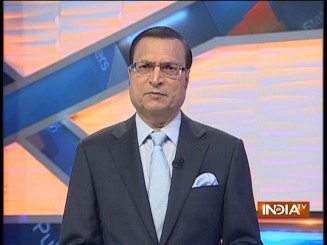 Gujarat Congress MLA and Kshatriya Thakor Sena leader Alpesh Thakor on Tuesday became emotional after fingers were pointed at him in the wake of hate attacks against labourers from UP and Bihar. Alpesh Thakor said that his son was down with dengue and was on the sick bed. It is true that Alpesh’s son had a very low platelet count of 28,000 which fell to 13,000 on Tuesday. The child’s condition is serious and our prayers are with him, so that he recovers soon and returns home from hospital.
Gujarat Congress MLA and Kshatriya Thakor Sena leader Alpesh Thakor on Tuesday became emotional after fingers were pointed at him in the wake of hate attacks against labourers from UP and Bihar. Alpesh Thakor said that his son was down with dengue and was on the sick bed. It is true that Alpesh’s son had a very low platelet count of 28,000 which fell to 13,000 on Tuesday. The child’s condition is serious and our prayers are with him, so that he recovers soon and returns home from hospital.
This is now the time for Alpesh to introspect. If he is so much concerned about his son’s health, he should also be concerned about the children of migrant labourers fleeing Gujarat in panic because of hate attacks by supporters of his Sena.
Alpesh had given provocative speeches in which he had called for “weeding out the bushes” that have grown up in Gujarat. These “bushes” (migrant labourers) are also human beings and they have families to look after. They have given their blood and sweat in return for wages to build industries in Gujarat. They too are Indians, and Alpesh, in order to garner support from his community, had been spreading hate against Hindi-speaking labourers.
According to the 2011 census, Gujarat’s poulation was six crore three lakhs, out of which two crore 69 lakhs are migrants, who have settled there after migrating from other states. Seventy per cent of workers in Gujarat’s industries are North Indians. More than 15 lakh labourers from UP and Bihar live and work in Surat, Valsad and Navsari. The population of the city of Surat is roughly 55 lakhs, out of which 30 lakhs are migrants.
Those who are spreading hate in Gujarat should understand that if the migrant workforce leaves, it will badly affect the state’s economy. Gujarat is India’s leading developed state, and a major exodus of migrant labourers will harm the interests of Gujaratis too.
Click Here to Watch Full Video | Get connected on Twitter, Instagram & Facebook
The unfortunate exodus of Bihar and UP labourers from Gujarat
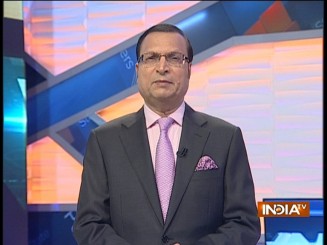 More than 15,000 migrant workers from Bihar and Uttar Pradesh have fled Gujarat so far in an exodus triggered by hate attacks following the rape of a 14-month old girl belonging to Thakor caste in Sabarkantha, Gujarat. Workers from Bihar and UP have been threatened by local goons belonging to Thakor Sena to leave the state, and in several cases, innocent labourers have been thrashed leading to the exodus.
More than 15,000 migrant workers from Bihar and Uttar Pradesh have fled Gujarat so far in an exodus triggered by hate attacks following the rape of a 14-month old girl belonging to Thakor caste in Sabarkantha, Gujarat. Workers from Bihar and UP have been threatened by local goons belonging to Thakor Sena to leave the state, and in several cases, innocent labourers have been thrashed leading to the exodus.
The exodus has resulted in tremendous financial loss to local industries, particularly ceramic, where migrant labourers have been working. Workers from Hindi-speaking states used to get good wages in these factories, and these people were the real ambassadors for Gujarat. They used to spread the message in Bihar and UP about how peaceful the state of Gujarat was, and how they were getting good remuneration for their work.
A handful of leaders, in order to score political points, spoiled the peaceful atmosphere. These leaders are enemies of society. Congress MLA Alpesh Thakore, in his new ‘avatar’ as a Thakore community leader may give any number of excuses to say that the video portraying him to be making provocative speeches, was of a meeting which took place 20 days before the rape incident. His arguments may be correct, but because of such provocative speeches, an atmosphere of hate was created, and the child rape incident added fuel to fire. Supporters of Alpesh Thakore exacerbated the situation by thrashing innocent labourers from Bihar and UP, giving rise to the exodus.
I would like to appeal to all sections of society in Gujarat, Bihar and UP to calm down and help in bringing back normalcy in Gujarat. Parochialism will not solve any problem.
Click Here to Watch Full Video | Get connected on Twitter, Instagram & Facebook
VHP saints have put the Centre in a fix over Ram temple
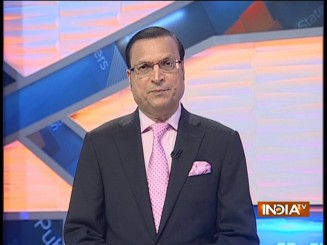 A high-powered committee of saints belonging to Vishwa Hindu Parishad on Friday issued an ultimatum to Centre to enact a legislation to build a Ram temple at the disputed site in Ayodhya by January 31. The saints said they were unwilling to wait any more for the Supreme Court to give its verdict on Ayodhya title suit, and would go ahead with laying the foundation of the temple. The saints decided to hold mass rallies across India next month, and this will be followed by presenting petitions to Governors at state capitals.
A high-powered committee of saints belonging to Vishwa Hindu Parishad on Friday issued an ultimatum to Centre to enact a legislation to build a Ram temple at the disputed site in Ayodhya by January 31. The saints said they were unwilling to wait any more for the Supreme Court to give its verdict on Ayodhya title suit, and would go ahead with laying the foundation of the temple. The saints decided to hold mass rallies across India next month, and this will be followed by presenting petitions to Governors at state capitals.
The Supreme Court will begin hearing in the Ayodhya case from October 29 onwards, and it is expected that the hearing will take place at a fast pace, and a verdict is expected at the earliest. Secondly, eight years ago, the Allahabad High Court had given its verdict on the dispute site, where the Babri mosque wias built during the Mughal period after demolishing a temple. The High Court had even divided the disputed land among Hindus and Muslims. The present case pending before the apex court relates to the title suit.
The sooner the apex court’s verdict comes, the better. Politicking over this issue will continue even after the apex court gives its verdict. Already the opposition is levelling charges that the temple issue is being brought to centrestage in the wake of forthcoming assembly polls in MP, Rajasthan, Chhattisgarh and Telangana, and next year’s Lok Sabha polls. The BJP’s stand has been that since the matter is already before the apex court, it cannot bring a legislation on an issue that is sub judice.
The argument put forth by the VHP saints is that if the government can bring an ordinance to enforce ban on triple talaq, why can’t it bring a legislation to build the Ram temple on the disputed site. If the Supreme Court’s order on SC, ST atrocities act can be overruled by enacting a legislation, why can’t the Centre bring law to build the Ram temple, which the Hindu masses really want.
Click Here to Watch Full Video | Get connected on Twitter, Instagram & Facebook
Bringing fuel products under GST can be a durable solution
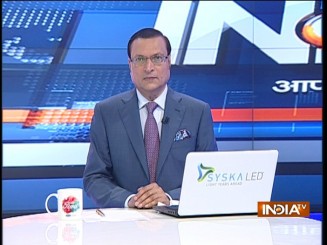 On Thursday, Finance Minister Arun Jaitley announced a Rs. 1.50/iitre cut in central excise duty, while oil marketing companies cut their prices by Re 1/litre, thereby ensuring a Rs 2.50/litre reduction in fuel prices.
On Thursday, Finance Minister Arun Jaitley announced a Rs. 1.50/iitre cut in central excise duty, while oil marketing companies cut their prices by Re 1/litre, thereby ensuring a Rs 2.50/litre reduction in fuel prices.
Jaitley appealed to all state governments to reduce VAT on petroleum products by Rs 2.50/litre. Most of the BJP-ruled governments promptly reduced VAT, thereby providing an overall relief of Rs 5/litre on petroleum products. However, the state governments in Karnataka, West Bengal and Kerala refused to reduce VAT, meaning that petrol and diesel in these states will be costlier.
It is true that international crude prices continue to rise because of US sanctions against Iran and the OPEC countries reducing their oil output, resulting in a demand-supply mismatch. Moreover, the US-China trade war is impacting the economy of many countries in the world.
The Indian Rupee continues to slide and on Thursday, it touched a low of Rs 73.81/US dollar. The Sensex also fell 806 points to close at 35,200. All these factors can cause serious harm to our economy, but Jaitley has expressed confidence that basic parameters of our economy are strong and stable. Even if European and Southeast Asian countries face problems, the Indian economy can survive through this turmoil. But if crude prices continue to rise, the effect of Thursday’s cut of Rs 5/litre can last only for two weeks. In 10-15 days, the prices of petrol and diesel will be back to the same level.
Under present circumstances, the only way to lower fuel prices is to bring all petroleum commodities under GST. This will reduce oil prices, and at least there will be uniformity in fuel prices across the country.
Click Here to Watch Full Video | Get connected on Twitter, Instagram & Facebook